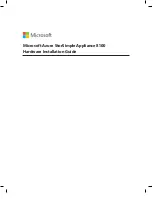
35
Parameters
screen-length
: Specifies the maximum number of lines to be displayed on a screen, in the range of 0 to
512. Setting this argument to 0 disables pausing between screens of output.
Usage guidelines
This command sets the maximum number of lines that can be displayed on one screen when the screen
pause function is enabled. If the screen pause function is disabled, the system displays command output
without any pause.
The actual number of lines that can be displayed on a screen is restricted by the display specification of
the configuration terminal. For example, if you set the maximum number of lines for a screen to 40 when
the display specification is 24 lines, the device sends 40 lines to the screen at a time, but only the last 24
lines are displayed on the screen. To view the previous 16 lines, you must press
PgUp
.
The screen pause function is enabled by default. To disable this function, use the
screen-length 0
or
screen-length disable
command. The
screen-length disable
command is available in user view.
This command is available in both user line view and user line class view:
•
If the setting in user line view is not the default setting, the setting in user line view takes effect.
•
If the setting in user line view is the default setting but the setting in user line class view is not, the
setting in user line class view takes effect.
Examples
# Set the maximum number of lines to be displayed on a screen to 30 for user line AUX 0.
<Sysname> system-view
[Sysname] line aux 0
[Sysname-line-aux0] screen-length 30
Related commands
screen-length disable
send
Use
send
to send messages to user lines.
Syntax
send
{
all
|
number1
| {
aux
|
vty
}
number2
}
Views
User view
Predefined user roles
network-admin
Parameters
all
: Specifies all user lines.
number1
: Specifies the absolute number of a user line. The value range is 0 to 65 in standalone mode
and 0 to 71 in IRF mode.
aux
: Specifies the AUX line.
vty
: Specifies the VTY line.
number2
: Specifies the relative number of a user line. The value ranges are as follows:
















































